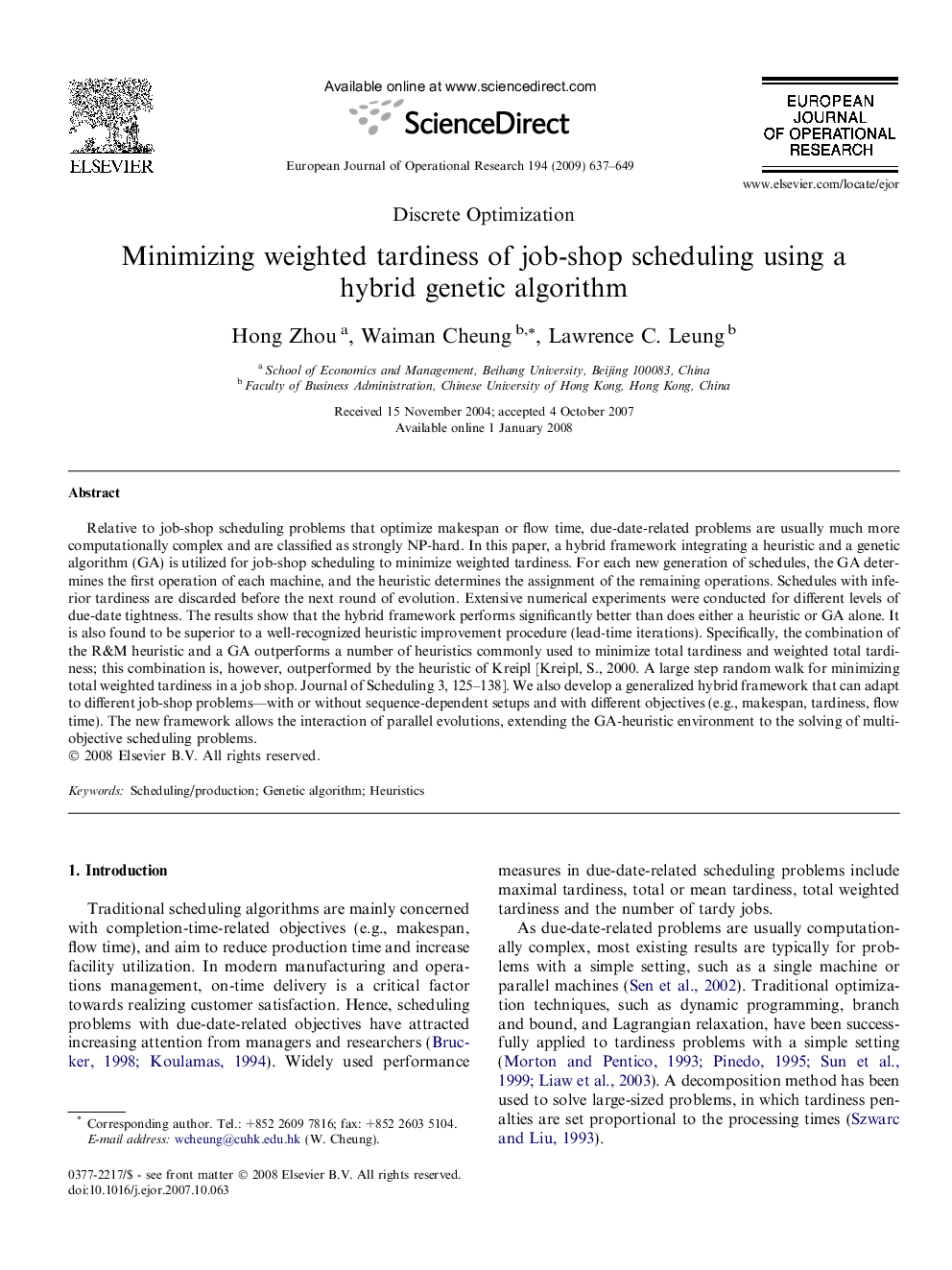| Article ID | Journal | Published Year | Pages | File Type |
|---|---|---|---|---|
| 477329 | European Journal of Operational Research | 2009 | 13 Pages |
Relative to job-shop scheduling problems that optimize makespan or flow time, due-date-related problems are usually much more computationally complex and are classified as strongly NP-hard. In this paper, a hybrid framework integrating a heuristic and a genetic algorithm (GA) is utilized for job-shop scheduling to minimize weighted tardiness. For each new generation of schedules, the GA determines the first operation of each machine, and the heuristic determines the assignment of the remaining operations. Schedules with inferior tardiness are discarded before the next round of evolution. Extensive numerical experiments were conducted for different levels of due-date tightness. The results show that the hybrid framework performs significantly better than does either a heuristic or GA alone. It is also found to be superior to a well-recognized heuristic improvement procedure (lead-time iterations). Specifically, the combination of the R&M heuristic and a GA outperforms a number of heuristics commonly used to minimize total tardiness and weighted total tardiness; this combination is, however, outperformed by the heuristic of Kreipl [Kreipl, S., 2000. A large step random walk for minimizing total weighted tardiness in a job shop. Journal of Scheduling 3, 125–138]. We also develop a generalized hybrid framework that can adapt to different job-shop problems—with or without sequence-dependent setups and with different objectives (e.g., makespan, tardiness, flow time). The new framework allows the interaction of parallel evolutions, extending the GA-heuristic environment to the solving of multi-objective scheduling problems.
